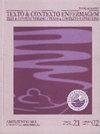SLEEP QUALITY ANALYSIS IN INDIVIDUALS WITH ACUTE CORONARY SYNDROME
Q2 Nursing
引用次数: 0
Abstract
ABSTRACT Objective: to assess the prevalence of sleep disturbances and factors associated with sleep quality in patients with Acute Coronary Syndrome. Method: this is a cross-sectional study, carried out in the Cardiology Unit of a public university hospital, from October 2021 to December 2022, with patients hospitalized for Acute Coronary Syndrome over 18 years old. Sociodemographic and clinical data were collected, and sleep quality was measured by the Pittsburgh Sleep Quality Index. Statistical association tests were performed, considering a value of p<0.05 as significant. Results: a total of 96 patients were included, the majority being male, married and with a mean age of 63 years. The most prevalent comorbidities were hypertension, dyslipidemia and diabetes. It was identified that 92% had alteration in sleep quality and that the number of hours slept (p.<0.01), time to start sleep (p.0.03), sleep latency (p.<0.01), sleep duration (p.<0.01), habitual sleep efficiency (p.<0.02) and daytime sleepiness and daytime dysfunction (p.0.01) were significantly associated with sleep quality. There was a weak but significant correlation between age (r-0.22, p.0.02) and the presence of obstructive coronary lesions (r-0.23; p.0.02) with the Pittsburgh Sleep Quality Index score. Conclusion: most patients with acute coronary syndrome were classified as poor sleepers, therefore educational interventions to promote sleep should be performed in this population to reduce cardiovascular risk.急性冠脉综合征患者的睡眠质量分析
目的:了解急性冠脉综合征患者睡眠障碍的患病率及睡眠质量相关因素。方法:这是一项横断面研究,于2021年10月至2022年12月在公立大学医院心脏病科进行,患者年龄在18岁以上,因急性冠状动脉综合征住院。收集了社会人口学和临床数据,并通过匹兹堡睡眠质量指数测量睡眠质量。以p<0.05为显著性,进行统计学相关性检验。结果:共纳入96例患者,以男性为主,已婚,平均年龄63岁。最常见的合并症是高血压、血脂异常和糖尿病。92%的患者睡眠质量发生改变,睡眠时间(p <0.01)、开始睡眠时间(p < 0.03)、睡眠潜伏期(p <0.01)、睡眠持续时间(p <0.01)、习惯性睡眠效率(p <0.02)、白天嗜睡和白天功能障碍(p <0.01)与睡眠质量显著相关。年龄(r-0.22, p.0.02)与冠脉梗阻性病变之间存在微弱但显著的相关性(r-0.23;p.0.02)与匹兹堡睡眠质量指数得分。结论:大多数急性冠状动脉综合征患者属于睡眠不良人群,因此应在这一人群中开展促进睡眠的教育干预,以降低心血管风险。
本文章由计算机程序翻译,如有差异,请以英文原文为准。
求助全文
约1分钟内获得全文
求助全文
来源期刊

Texto Contexto Enfermagem
Nursing-General Nursing
CiteScore
1.80
自引率
0.00%
发文量
85
审稿时长
>12 weeks
期刊介绍:
Texto & Contexto Enfermagem provides space for reflection and deepening of knowledge about issues of practice, teaching and research in health and nursing, at national and international levels.
The journal is published quarterly in the rolling pass or Continuous flow mode, accepting manuscripts in Portuguese, English or Spanish, in the categories original article, reflection, experience report and review. Contributions designated to the dissemination of unpublished original research results are prioritized for publication. Special issues are published at the discretion of the Board of Directors and Associate Editors. All manuscripts are published in two versions, one of which is English, aiming to cover the largest number of readers worldwide.
The editorial policy of Texto & Contexto Enfermagem is based on rigorous quality criteria for indexing and publishing (including technical and normative aspects, graphic and textual quality and excellence in scientific content); on responsibility for shared management between the Board of Directors, Editorial Board and Internal and External Editors Associates; and on the rigorous and constructive peer review, preserving the anonymity of authors and reviewers (double blinded).
 求助内容:
求助内容: 应助结果提醒方式:
应助结果提醒方式:


